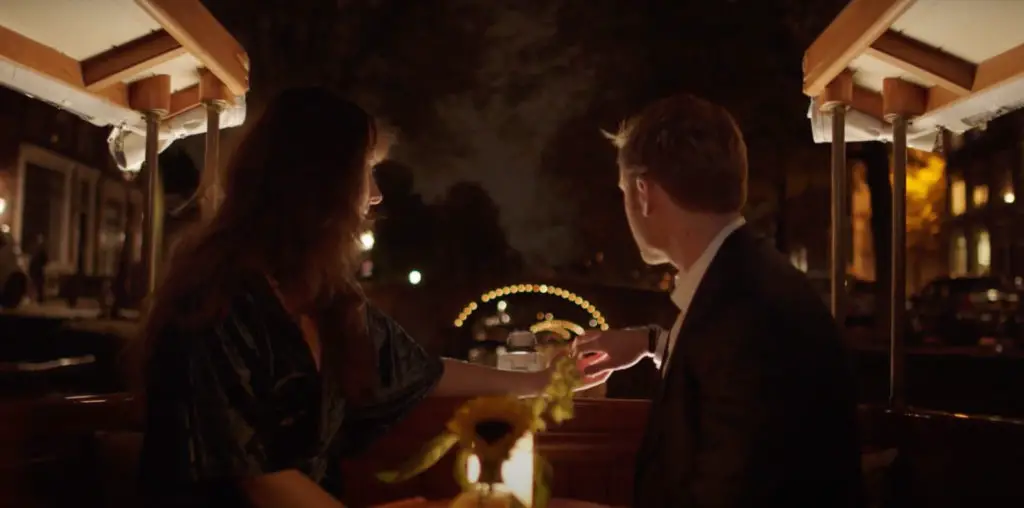
Have you ever attended a screening of your own movies to gauge real audience reaction? ^ Sometimes the laughter I hear makes me wince. I am not the best audience for my own work, because I’m just not that receptive to comedy.
What connection do you the writer make with your characters? ^ People have trouble understanding where I stand in relation to my characters. I don’t like victim stories and I don’t write them. I want to show the level of meanness people are capable of. And to make it believable, I actually tone it down.
We all know the censors left their mark onscreen with Storytelling. Taking a step back to reflect a few years later, what’s the bigger picture? ^ Nobody says ‘censorship’, instead it’s called the rating system; nobody knows how abridged what they see onscreen differs from what the director intended.
Does there exist any unresolved personal feelings that fuel the tone of your films? ^ Many people think my movies come out of bitterness, cynicism and hostility and not any positive feelings at all. The attacks and bad reviews, they hurt me a great deal. I want praise and respect like everybody else.
Ellen Barkin (Palindromes) has said working with you was the best experience of her career. ^ Sometimes actors are just glad to have a director who talks to them.
Is it true ‘Dawn Weiner’ has played or not played a part in both “Storytelling” and “Palindromes”? ^ I wanted Heather Matarazzo as Dawn Weiner for “Storytelling”, and had to rewrite the film when she turned me down. Then I begged her for “Palindromes”, to no avail, and ultimately had to kill Dawn Weiner, in order to finally get past that character. But I always wanted to cast Matthew Faber (Mark Weiner) and did.
How do you approach working with young actors with such sensitive material? ^ I don’t know if I treat child actors any differently than adult actors. All the child actors and their parents (associated with) “Palindromes” were gently but clearly explained the scenes. There was no coercing to get them or a performance in the movie.
How long did it take to write “Palindromes”? If you adapted more material would there be a new Todd Solondz film released more often? ^ It takes years to write a movie, for me. I’d like to adapt novels or other works but right now I’m drawn to my own material first.
Some critics have already branded “Palindromes” an “issue” movie? ^ I don’t want the controversy to overwhelm the experience of watching the movie itself.
It is possible that people will walk away from my movie talking about it in terms of issues, yet it is not an “issue” movie. The issue is a backdrop for the story of a young girl suspended between one family that kills one way and another family that kills in a different way. One family, who offers no choice and another one for whom all the choices have already been made.
Aviva in “Palindromes” is played by many actors with multiple identities. What’s the intent behind that? ^ Aviva is portrayed by two women, four girls (13-14 yrs old), a 12-yr-old boy and one 6-yr-old girl. I wondered what would happen if I cast a number of different types of people as one character who is wholly sympathetic. My hope was that there would be a cumulative effect that would be more emotionally affecting than had there been just one actor. Yes, one Aviva is male; Aviva transcends both genders.
Why use so many actresses who appear then reappear as Aviva? ^ I wanted to create a character played by different actors of widely varying types creating different sympathies, but focusing on the magical aspect of the device, creating a sort of fable. At the end of her grim adventures, Aviva remains the same girl, her core is the same. She seeks love and wants more than anything to be a mother.
Did you shoot multiple scenes with multiple ‘Avivas’ or were you certain in your pre-casting? ^ I had to assign Avivas for each scene and didn’t have the luxury to over-rehearse or shoot multiple scenes with multiple Avivas.
Although I laughed often in “Palindromes”, it seems less a ‘laugh out loud’ comedy. Is dark comedy still your secret weapon of choice? ^ The comedy in my movies enables me to deal with the forbidden, but I do want to make people laugh. There is less humor in “Palindromes”; it is my saddest and most tender film yet.
What do you hope audiences take way from “Palindromes”? ^ Just as all of my movies have been: “Palindromes” is the story of unrequited love, forbidden love and self-love.
